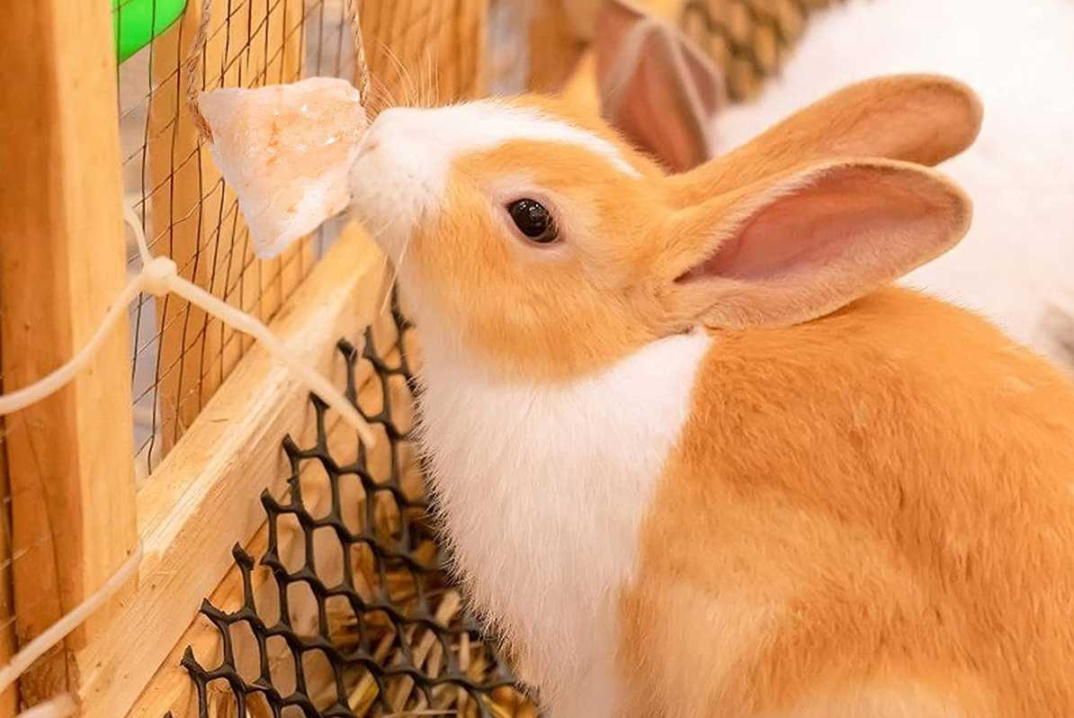Do Rabbits Need Salt Licks?
Rabbits are adorable and popular pets that require special care to ensure their health and well-being. Providing a balanced diet is one of the most crucial aspects of rabbit care. While rabbits have specific dietary requirements, the question often arises whether or not they need salt licks. In this article, we will explore the importance of salt licks for rabbits and provide answers to some frequently asked questions.

The Importance of Salt Licks
Just like any living creature, rabbits require certain essential minerals and nutrients to maintain optimal health. Salt licks, which are blocks or stones containing essential minerals, can help fulfill these requirements. Salt licks provide rabbits with essential sodium, which aids in maintaining proper hydration and electrolyte balance. Sodium also plays a vital role in nerve function and muscle contractions.
In addition to sodium, salt licks also contain other minerals such as calcium, magnesium, and potassium, which are essential for maintaining healthy bones and teeth, muscle function, and overall physiological processes in rabbits.
When and How to Offer Salt Licks
While salt licks can be beneficial for rabbits, it is important to offer them in moderation. Rabbits have a natural instinct to regulate their salt intake, and excessive consumption can lead to health issues. Here are some guidelines to follow:
- Offer a salt lick to adult rabbits sparingly, as their bodies can naturally regulate salt intake.
- Young rabbits and pregnant or lactating rabbits may require additional minerals and can benefit from a salt lick. However, it is essential to consult a veterinarian to determine the appropriate amount.
- Place the salt lick in a secure holder or attach it to the rabbit’s enclosure, ensuring it is easily accessible.
- This prevents the rabbit from urinating on it or contaminating it with bedding material.
- Monitor your rabbit’s salt intake and health closely. If you notice any unusual behavior or symptoms such as excessive thirst, diarrhea, or lack of appetite, consult a veterinarian.
Common FAQs About Salt Licks for Rabbits
1. Can rabbits get too much salt from a salt lick?
Rabbits have a natural instinct to regulate their salt intake. However, excessive consumption of salt can lead to health issues such as dehydration, kidney problems, or electrolyte imbalances. It is important to offer salt licks in moderation and monitor your rabbit’s salt intake.
2. Can rabbits survive without a salt lick?
Rabbits can survive without a salt lick if their diet provides them with adequate amounts of essential minerals. However, offering a salt lick in moderation can be beneficial for their overall health and well-being.
3. Can rabbits get enough minerals from their diet alone?
Rabbits require a balanced diet that includes hay, fresh vegetables, and a small amount of pellets to meet their nutritional needs. While a well-balanced diet can provide most of the essential minerals, offering a salt lick can be an additional source to ensure they receive adequate amounts of minerals.
4. Are there any alternatives to salt licks?
If you prefer not to offer a salt lick to your rabbit, you can ensure they receive essential minerals through their diet. Providing a balanced diet with a variety of hay, fresh vegetables, and limited pellets can help meet their mineral requirements.
In conclusion, salt licks can be beneficial for rabbits as they provide essential minerals such as sodium, calcium, magnesium, and potassium. While it is important to offer salt licks in moderation, they can contribute to a rabbit’s overall health and well-being. It is always advisable to consult a veterinarian to determine the appropriate amount of minerals your rabbit may require.
Related Articles…
Copyright Notice:
Images displayed on this website are not our property, but are procured from the internet. If you hold copyrights to any image and wish for its removal, please get in touch with us.